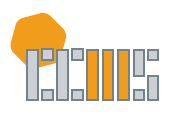Abstract / Synopsis
Introduction-to-proof courses are becoming more prevalent in mathematics departments as more recognize the need to support students while they transition from courses focused on computation (such as calculus) to proof-intensive courses (such as real analysis). In such introduction courses, there are some common proving techniques to teach (induction, contradiction, and contraposition to name a few), but the content varies from institution to institution. This note adds to the discussion on content in such courses by analyzing two prior studies, one using a coding scheme designed to illuminate step-by-step justifications in a proof, and the other focused on interviews with course instructors. Our analysis of the literature shows that there may be reason to believe that content-based introduction-to-proof courses inadvertently overemphasize specific mathematical-area reasoning, which may not translate effectively to subsequent proof-based courses in different content areas. Simply put, while some mathematicians may be convinced of this, a real analysis, number theory, or abstract algebra course may not be the most effective introduction-to-proof course for students to transition to other proof-based courses.
DOI
10.5642/jhummath.201702.07
Recommended Citation
Milos Savic, "Does Content Matter in an Introduction-to-Proof Course?," Journal of Humanistic Mathematics, Volume 7 Issue 2 (July 2017), pages 149-160. DOI: 10.5642/jhummath.201702.07. Available at: https://scholarship.claremont.edu/jhm/vol7/iss2/7
